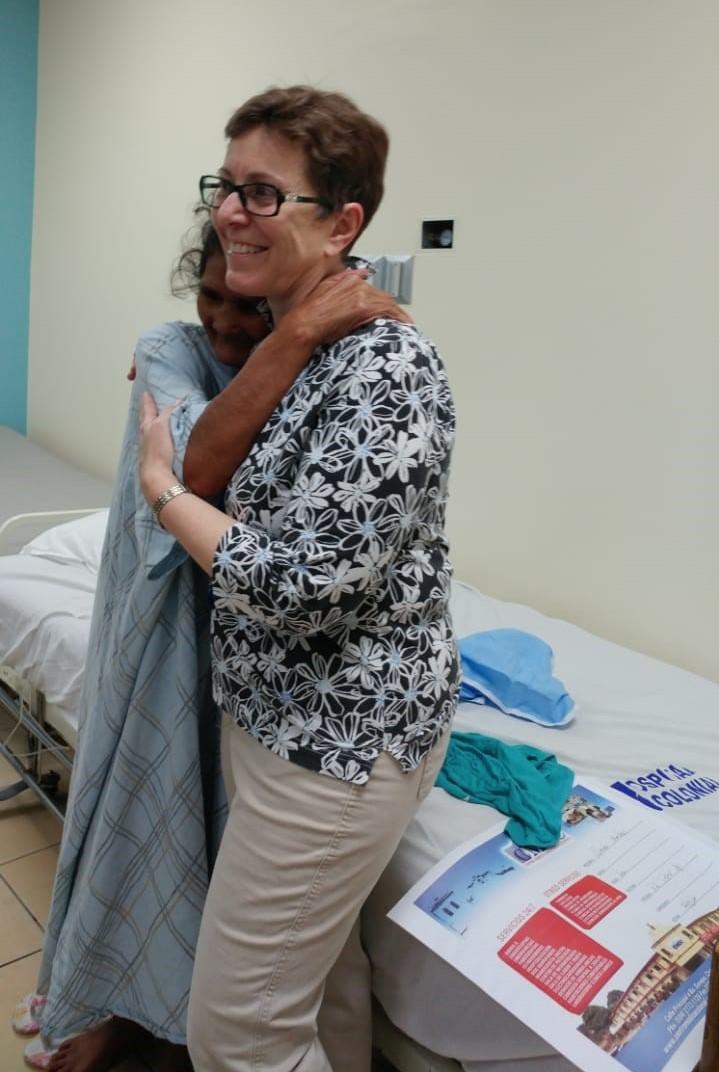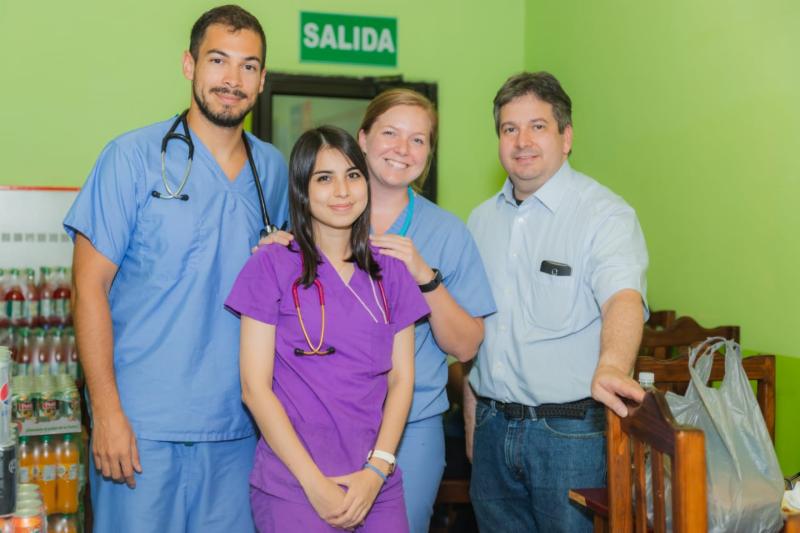This September, the GW Heart & Vascular Institute supported its 9th Annual
Medical Mission to Honduras to provide life-saving pacemakers and defibrillators to patients in need. This brigade of GW medical professionals led by Drs. Cynthia Tracy and Marco Mercader implanted 49 devices during their two-week visit adding to a total of 321 pacemaker and defibrillator implantations and 1,500 patient evaluations since 2010. Nearly 300 Hondurans traveled from all 18 regions of the country to see the GW medical team in Comayagua.

"The Brigade has become the most anticipated medical mission to Honduras and is widely advertised and supported in Honduras. Each year has a special "flavor." This year was the year of great saves. It started the morning we arrived with a patient who had been admitted the night before with a heart rate of 16 beats per minute and a blood pressure of 60. It was incredible to see the patient walk out of the hospital just hours after his pacemaker implant when he had literally been near death hours before," recounted Dr. Tracy.
Working in partnership with medical professionals from Centro Medico Comayagua Colonial Hospital in Comayagua, Honduras, the 2018 GW team included two second-year medical residents from GW, Drs. Pedro Covas and Rachel Volke; a technician from the Washington, DC VA Medical Center, Eli Sevilla; and Maria Cruz from Medtronic. Dr. Dorys Chavez, a Honduran physician who was a cardiology intern at GW last year, assisted in evaluating patients. Training the local team has been one of the Mission's biggest accomplishments toward sustainability. Dr. Pablo Toro, a Honduran physician, was sponsored by the GW Heart & Vascular Institute in 2013 to receive training from GW Cardiology Division on how to interrogate devices and provide follow-up care. This year, Dr. Toro assisted with the Mission's largest volume of patients and provided overnight care to the sickest patients.

Dr. Marco Mercader calculated that about 2-percent of the Honduran population is currently being treated for heart arrhythmias. "The need for pacemakers and defibrillators is particularly great in Central America due to a regional disease called Chagas infection. The Chagas parasite attacks the heart muscle and electrical system often requiring pacemakers and implantable cardioverter-defibrillators as treatment," said Dr. Mercader. "In just 9-days, our team provides half of all 100 pacemakers and defibrillators implanted annually in Honduras. In actuality, we estimate the Honduran population may need up to 4,000 of these devices annually."
Over the past nine years, Dr. Tracy has acquired more than $3 million in donated heart devices and medical equipment. Supporters of the 2018 GW Medical Mission include Medtronic, GW Hospital, Heart Beat International and GW Medical Faculty Associates.
Your support is critical to continuing our work in Honduras. Please consider making a donation today. Also please join Drs. Tracy and Mercader who will present highlights from the GW Medical Mission to Honduras on Saturday, October 13th from 2:00 PM to 4:00 PM at the George Washington University Museum and The Textile Museum. Docent-led tours of the Museum's newest exhibit, A Nomad's Art: Kilims of Anatolia, will be available.